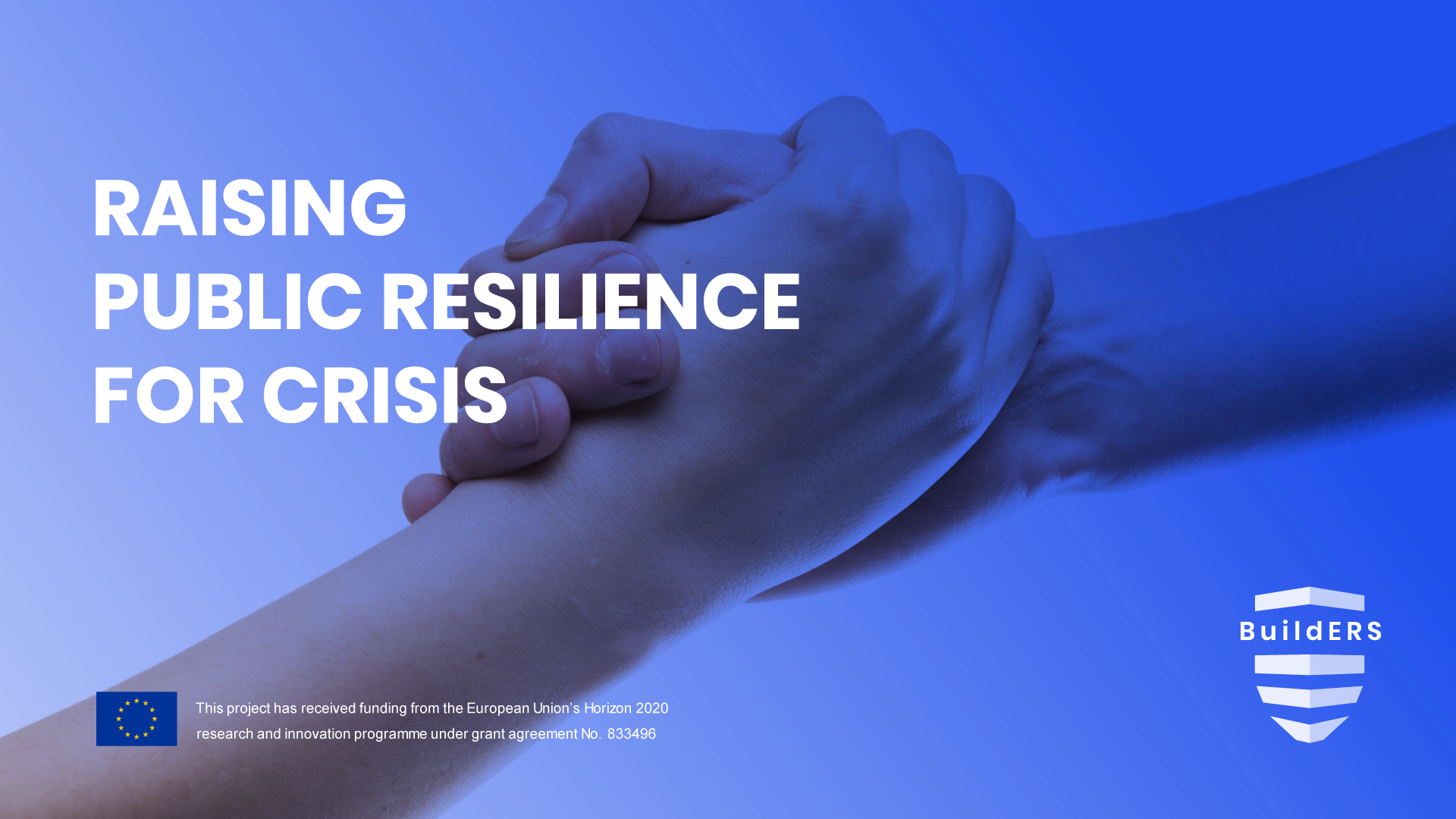This, in its turn, brings along a shortage of food and water supply, and information. In the case of a crisis, it should be considered that many people are in need at the same time and help will therefore arrive later than usual. This is why it is important for all households to be able to cope independently in unusual situations. Accordingly, people should be knowledgeable and consider the possibility of a crisis in their daily activities.
Estonian Civil Protection concept (2018) sets the strategic goals and expected results to achieve to increase the citizens’ resilience for crisis:
- People have acquired the necessary knowledge to cope with crisis situations through education, in-service training or self-study.
- People are aware of the potential risks, their effects and relevant guidelines for crisis situations.
- People have made preparations at their home and community level to raise their self-resilience and ability to cope with crisis.
- The communities have been empowered to be able to support those in need during the crisis.
- People are provided with additional needs-based assistance during the crisis to create decent conditions and help them return to a normal way of life
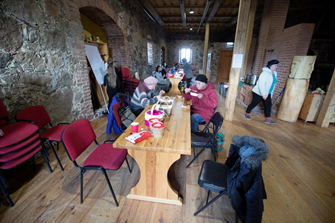
During the South-Estonian storm and disruption of electrical supply in 2019, the municipality offered the people the opportunity to get the warm lunch if they did not have the opportunity to cook at home.
The survey the Estonian Rescue Board (ERB) organised in late 2019 revealed that only 15% of Estonian residents have sufficiently analysed their preparedness for a crisis and only 35% of the residents consider it possible that an emergency may arise in their neighbourhood. This means that the majority of the population is not sufficiently prepared for large-scale emergency.
In a crisis it is very important that people are well prepared − that they have enough of everything they will need at home and that they have discussed potential plans of action with their family and neighbours. One of the reasons this is so important is that it ensures that help will also reach those who are unable to help themselves in a crisis situation, and reach them in time. When a big crisis occurs, it takes time to reorganise things, so it is important that people are have prepared to cope for at least a week in the situation that has emerged. One of the main messages for public is – “the ability of yourself and your family to cope in crisis situations depends, above all, on you!” Therefore, the main messages are following:
- Stock up on enough drinking water, food and medicines for you and your family.
- Think about whether people you know may need help during a crisis and arrange to keep in touch with one another, including how to do so.
- Draw up a list with the contact details of a neighbour, key figures from your local community and relevant state and local government departments, agencies and institutions so that you can respond promptly and efficiently in the event of a crisis.
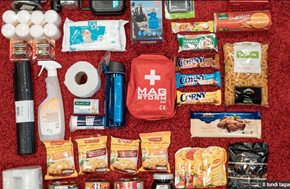
During the campaigns, ERB has introduced the suggestions to have the supplies being able to cope at home independently for one week during the emergency.
In the recent years, the ERB has started raising public awareness of emergency risks and preparing for coping with emergencies. We have covered a wide range of target groups from children to the elderly. Children are getting new skills in the summer camps. Civil protection is the part of the curriculum of national defence course in the school and ERB is supporting the teachers on this topic. Together with different health and safety topics, the main civil protection skills and knowledge are already integrated to the basic national curriculum. We have also started piloting the involvement of residents in the emergency exercises. Grown-ups are mainly included together with their neighbours. While firefighters are doing the safety counselling home visits, they also reach to the more vulnerable risk groups and emergency preparedness topics are explained.
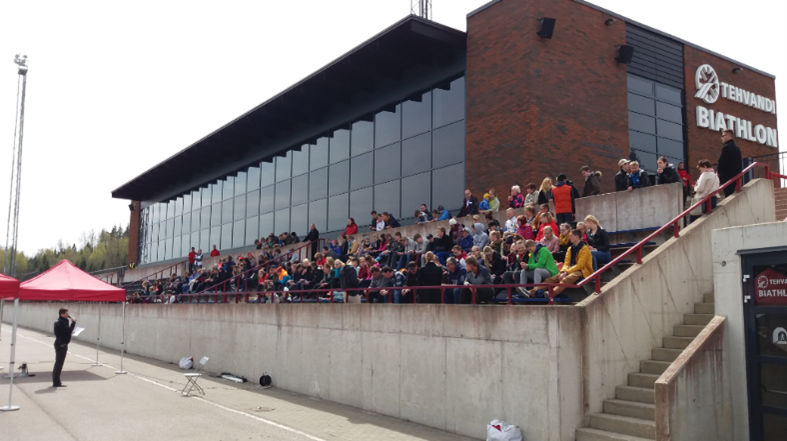
People getting instructions to take part in the emergency exercise organized by ERB.
In autumn 2020, ERB organized the Civil Protection Week for a first time to offer different kind of activities to the public through the local communities and in the public events. These public events included wide scope of information and opportunities to raise practical skills for being better prepared for emergencies. Due to the situation after the first wave of Covid-19 pandemics, the important part of the teaching also included the appropriate use of self-protection equipment and measures to avoid the virus.

Activities during the Civil Protection Week with the limited number of participants due to the Covid-19 restrictions.
At the end of 2020, the ERB sent all Estonian residents a printed manual titled “Ole valmis!” (“Be prepared!”), providing instructions on how to cope in a potential crisis. The instructions on how to behave in the case of crises were posted to the most of the households in Estonia. The instructions were published in three languages: Estonian, Russian and English. In addition to the brochure, necessary information is also available via the mobile application “Ole valmis!” (“Be prepared!”) and on the web page olevalmis.ee.
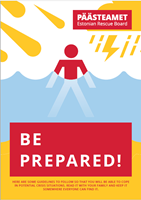
The handbook of instructions for emergencies (ERB).
To promote the importance of emergency preparedness the ERB have organized the amount of media campaigns. Together with the Estonian Public Broadcasting the popular educational movie “Storm” has been made to increase the public preparedness for emergencies and to recommend the procurement of domestic supplies.
Estonian Rescue Board has set the priority in raising the people’s self-resilience before the crisis. This approach helps to decrease the number of people who need immediate help in the earlier phases of the crisis. That helps the rescuers together with the partners to focus more on the most vulnerable groups during the crisis and guarantee them the support to survive. Our expectations to the BuildERS project is to be better prepared to find and help the most vulnerable groups before and during the emergencies.
Author: Margo Klaos (Estonian Rescue Board)
